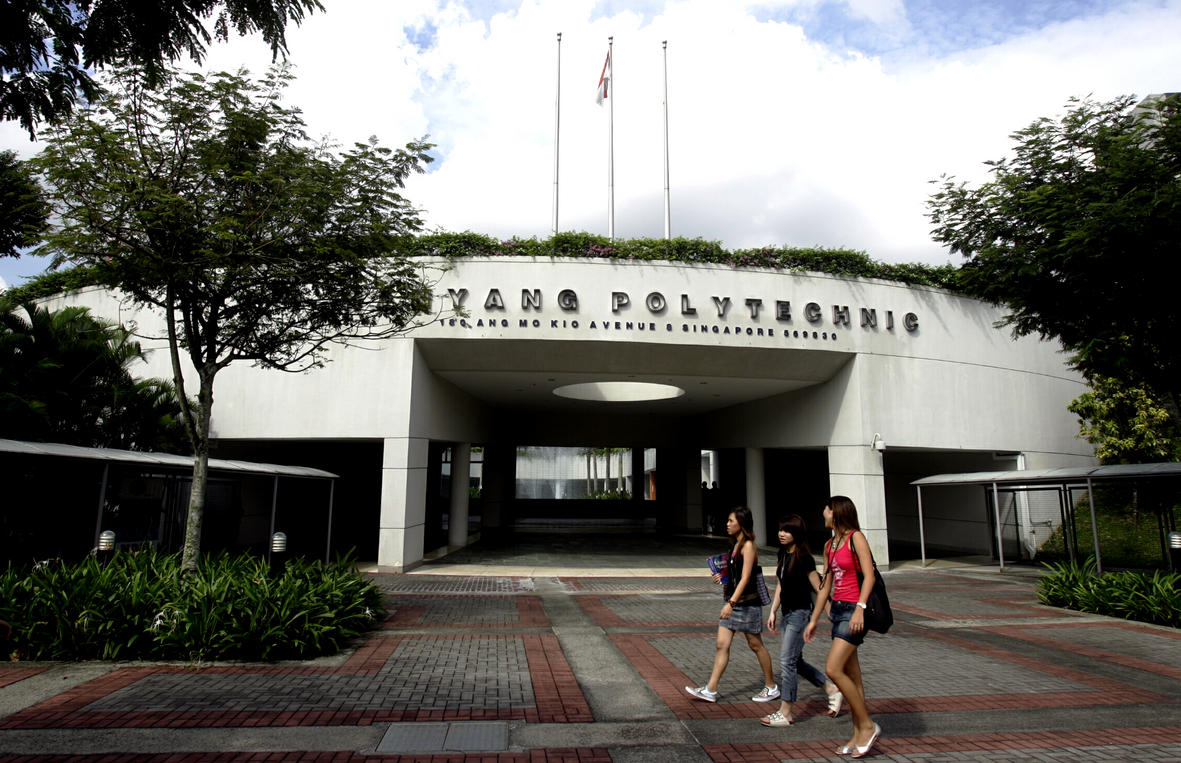AGO report: Nanyang Polytechnic gave $8.38m in 'hidden subsidies, excess funds' to subsidiary
Sign up now: Get ST's newsletters delivered to your inbox

A generic shot of Nanyang Polytechnic.
PHOTO: ST FILE
SINGAPORE - The manner in which Nanyang Polytechnic (NYP) managed transactions with its subsidiary involving public funds "reflect a disregard for financial controls and proper governance", the Auditor-General's Office (AGO) said in its annual report released on Tuesday (July 26).
NYP was one of 11 statutory boards audited for Financial Year 2015/16 by the AGO, which scrutinises the financial statements of all 16 ministries and eight organs of state, as well as a selected number of public sector agencies, each year.
The public sector watchdog found that NYP did not have a proper governance framework to manage transactions with its subsidiary, Nanyang Polytechnic International Pte Ltd.
For instance, some members of NYP's Board of Governors with "vested interests" in the subsidiary were involved in the evaluation and decision-making process of matters related to the subsidiary.
This included the approval of a funding model that was more generous than that provided for in Government instructions.
Furthermore, by not charging market rates for premises used and by giving more funding than what the Board of Governors had approved, NYP gave its subsidiary hidden subsidies and excess funds totalling $8.38 million from 2007 till March 2015.
"Without a proper framework to manage conflict of interest, there was no assurance that decisions on transactions with its subsidiary were made in an objective and impartial manner," said the AGO.
It added that generous funding terms, excess funding and hidden subsidies lacked transparency, and distorted the subsidiary's financial state of affairs, making it difficult for the Government to assess its true financial performance and viability.
NYP said in a statement today that it acknowledges and accepts the finding of the AGO's report, adding: "We have commenced a detailed review of the areas highlighted to ensure that measures are put in place to effectively address the issues of concern."
NYP noted that some board members and staff were appointed to the subsidiary's board "to ensure alignment of objectives" between the polytechnic and the fully-owned subsidiary. The subsidiary's directors do not receive separate director's fees.
"None of the decisions cited in the audit observations yielded personal gain for any of the individuals involved, as they had no bearing on their remuneration or benefits," added NYP.
Nonetheless, to avoid putting board members "in a situation of actual or perceived conflict of interest", NYP is putting in place a governance framework on the handling of transactions with subsidiaries.
In a separate statement, the Ministry of Education - which NYP comes under as a statutory board - made similar points. Nanyang Polytechnic International Pte Ltd was set up to receive foreign visitors and bring NYP courses overseas, performing internal functions of NYP. All profits of the subsidiary belong to NYP, noted MOE.
But MOE nonetheless acknowledged the need for a proper governance framework and said it has "instructed NYP to take immediate actions to put in place a proper governance framework."
NYP also said that it stopped funding its subsidiary from April 2016. The Board of Governors has been informed of the excess funds and NYP will seek its decision on what action to take. NYP has also started charging its subsidiary the market rate for use of its premises since April 2016.


